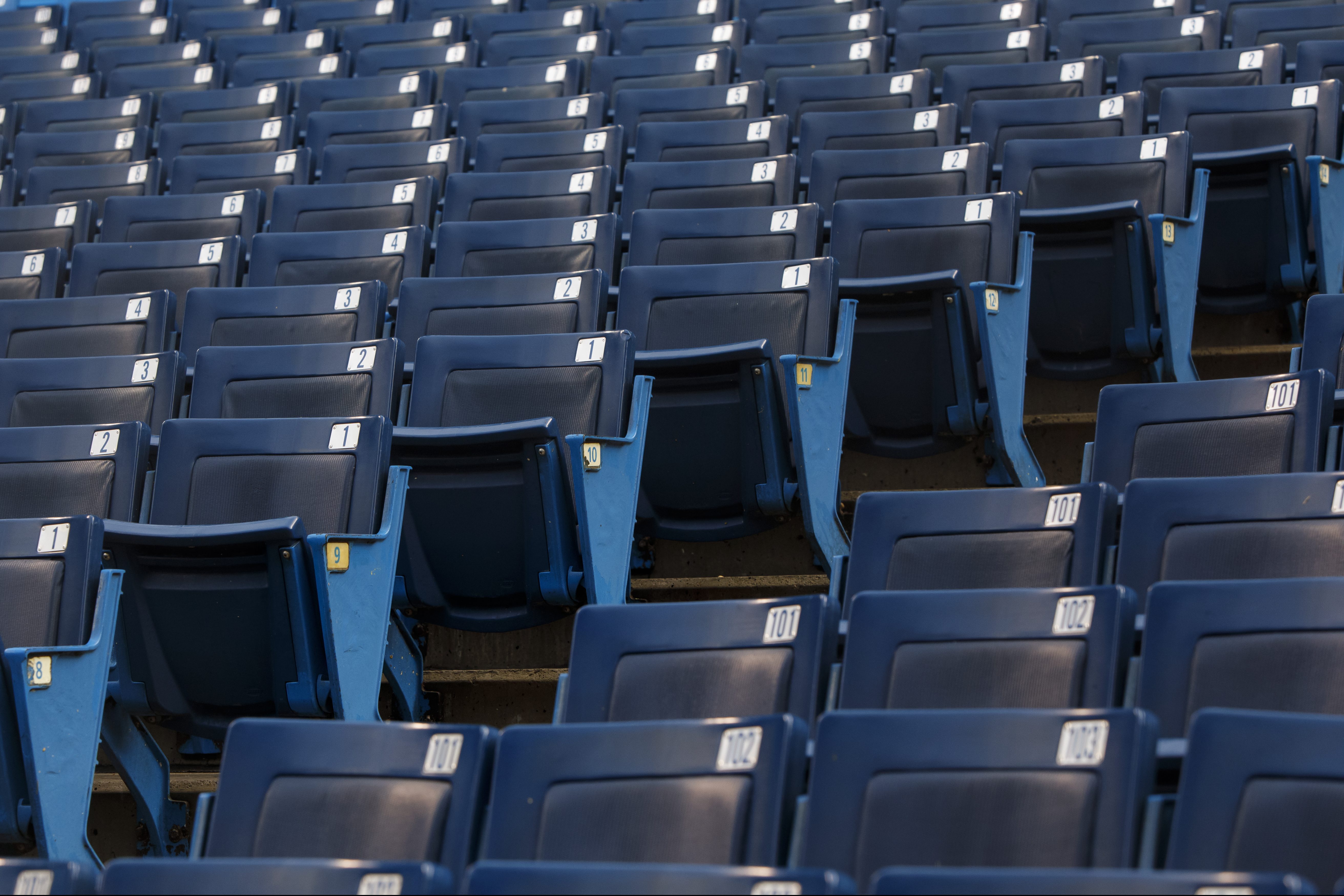The bad blood that had been simmering over the course of nine straight days of back-and-forth negotiations between Major League Baseball’s owners and players boiled over on Tuesday afternoon and resulted in MLB commissioner Rob Manfred announcing his sport will scrap regular-season games over a labor dispute for the first time in 27 years.
While technically true, baseball also missed two-thirds of its regular season just two years ago when MLB and the MLBPA were unable to come to an agreement about how to play ball in the midst of the COVID-19 pandemic. While not a labor dispute by definition, the 2020 spat involved many of the same issues baseball is still trying, unsuccessfully, to resolve.
“I had hoped against hope that I would not have to be in the position of canceling games. We worked hard to avoid an outcome that is bad for our fans, bad for our players and bad for our clubs,” Manfred wrote in a letter to fans. “I want to assure our fans that our failure to reach an agreement was not due to a lack of effort on the part of either party. The players came here for nine days, worked hard and tried to make a deal. I appreciate their effort. So, what is next? The calendar dictates that we are not going to be able to play the first two series of regular-season games and those games are officially canceled. We are prepared to continue negotiations. We have been informed that the MLBPA is headed back to New York meaning that no agreement is possible until at least Thursday. Currently, camps could not meaningfully operate until at least March 8th, leaving only 23 days before Opening Day.”
With the first two series of the season now wiped from the slate, the MLB schedule will contain 156 games at the most, a change that will cost players more than $120 million in collective salary. For each additional day of the season that is canceled, players will lose an additional $20.5 million in salary, according to the Associated Press.
The short-term situation for baseball is looking bleak, but there was one piece of potentially good, even great, news for the long-term prospects of the sport contained in Manfred’s otherwise cheerless comments.
“We offered a procedural agreement that would allow for the timely implementation of sorely needed rules like the pitch timer and elimination of shifts to improve the entertainment value of the game on the field,” he said. “And we agreed to the universal DH.”
Setting aside the implication that the players did not agree to the procedural agreement put forth by Manfred and the owners, the fact that the implementation of a pitch timer and a ban on shifts to increase the entertainment level of baseball’s on-field product is even on the table is a cause for celebration.
The action-killing shift has got to go and a pitch clock, er, timer, to speed up the game is a regulator baseball has needed for a long, long time. A universal DH is probably somewhat less of a need, but if it helps create more action and balls in play, sign us up.
Speaking of signing, here’s hoping the players will sign off on those game changes when negotiations resume. If no baseball on March 31 leads to a future where baseball is played without the shift and with a pitch clock, it’ll be more than worth it.
Whether you’re looking to get into shape, or just get out of a funk, The Charge has got you covered. Sign up for our new wellness newsletter today.
